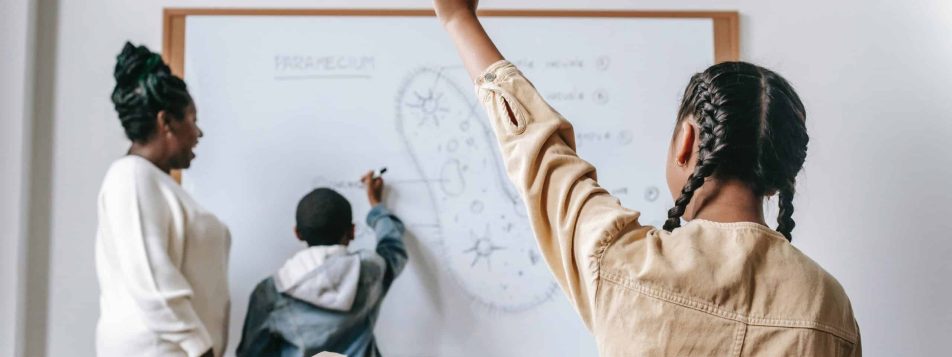Explore types of study preferences
The different types of studying preferences observed at the differences and similarities in studying behavior.
For example, those who prefer deep learning spend more time perusing text material. Aside, while those who prefer surface learning spend more time highlighting and underlining text material.
Those who prefer deep or surface learning also tend to differ in the amount they read while studying.
Deep and surface studying preferences also differ with respect to how they interact with studying strategies. For instance, those who prefer deep learning are likely to take more notes and do more summarizing of material than those who prefer surface learning.
A series of studies by Jang and colleagues (Jang, O'Rourke, & Jung, 2002), provide direct evidence of the relationship between studying preferences and learning performance.
Studies conducted with students in introductory psychology courses. They observed how they viewed videotaped lectures, took notes, and completed a quiz. The lecture material organized in a specific manner (e.g., certain sections were highlighted in red on the videotape).
So, that students could easily access the information that was important for the quiz.
Study Preferences
Students randomly assigned into two groups; the deep group had the instruction to pay careful attention to the highlighted sections of the lecture. While the surface group ordered to pay attention to the general content of the lecture.
Students received series of questionnaires to assess their studying preferences. The results of the study revealed that students who prefer deep learning performed better on the quiz. Than students who prefer surface learning.
The students with the deep learning preference were able to use the highlighted sections. According the lectures in a more effective way than the students with the surface learning preference. In effect, the deep learning group was able to study more efficiently.
Cheung and colleagues (Cheung, Jang, & O'Rourke, 2006) examined the effects of studying preferences. They observed learning and performance in a more detailed fashion.
Deep Learning VS Surface Learning
The researchers compared students who scored high on the deep learning preference versus those who scored low on the deep learning preference. They found that students who scored high on the deep learning preference, completed more practice questions.
They also received higher scores on the quiz. In addition, they were more likely to achieve an A+ on the quiz compared to students who scored low on the deep learning preference.
The results provide additional support for the idea that students who prefer deep learning study more effectively. Cheung and colleagues (Cheung, Jang, & O'Rourke, 2008) examined the extent to which students who prefer deep learning are able to use the material they have learned in an effective way.
In the study, students tested on their deep learning and surface learning preferences and their note-taking strategies. Students then received a test on material in a lecture.
The results showed that students who prefer deep learning did better on the test if they took notes in a conceptual manner.
In addition, students who prefer deep learning also did better on the test if they used a combination of surface and deep learning strategies.
The results provide evidence that students who prefer deep learning are able to use the information they learned in an effective way, while students who prefer surface learning are not able to do so.
Self-Regulated Learning
Self-regulated learning comprises a variety of cognitive and metacognitive strategies that a student can use to monitor and control his or her learning.
Additionally, self-regulated learning has been linked to a variety of positive learning outcomes, including improved concentration and more effective use of study time.
In addition, students who are highly self-regulated learners tend to achieve better grades than students who are low in self-regulated learning (Zimmerman, 2000).
In a recent study, Zimmerman (Zimmerman, 2005) explored the relationship between studying preferences and self-regulated learning in the context of the classroom. Students viewed a videotaped lecture and completed a quiz.
The students were then instructed to self-reflect on the quiz by describing their study behaviors. The results showed that students who prefer deep learning are better able to self-regulate their study behaviors.
In particular, students who prefer deep learning are better able to concentrate on studying. Additinally, theyare better able to identify the important information.
Also they are better able to monitor their study behavior to make sure that they are studying effectively, and are better able to make sure that they do not become tired while studying.
The results suggest that students who prefer deep learning, and who therefore may study more effectively, also are better able to control their own learning.
Implications for Instructional Design
Two implications for instructional design follow from the research on studying preferences. First, students who prefer surface learning should be given opportunities.
They need to practice using surface learning strategies and techniques. Surface learning strategies such as highlighting, underlining, and taking notes are important in learning and should be emphasized in instruction.
Second, students who prefer deep learning should be given opportunities to practice using deep learning strategies and techniques.
Deep learning strategies such as taking more notes, doing more summarizing, and rereading text material are important in learning and should be emphasized in instruction.
Implications for High School Teachers
The research on studying preferences and self-regulated learning provides many implications for high school teachers. Teachers should ensure that students have opportunities to practice using surface and deep learning strategies and techniques.
Teachers should provide opportunities for students to practice using surface learning strategies. The research suggests that students who prefer surface learning are more likely to learn from teachers and peers who provide these opportunities.
Differences in learning can be monitored by teachers, so that students who are having difficulty can receive additional help.
Cudy is a marketplace where students could find the best tutors who suitable with their studying preferences. Cudy is a platform for online class learning with effective tutoring service features. The tutoring features is extremely convenient to use and can be accessed at any time and from any place.






